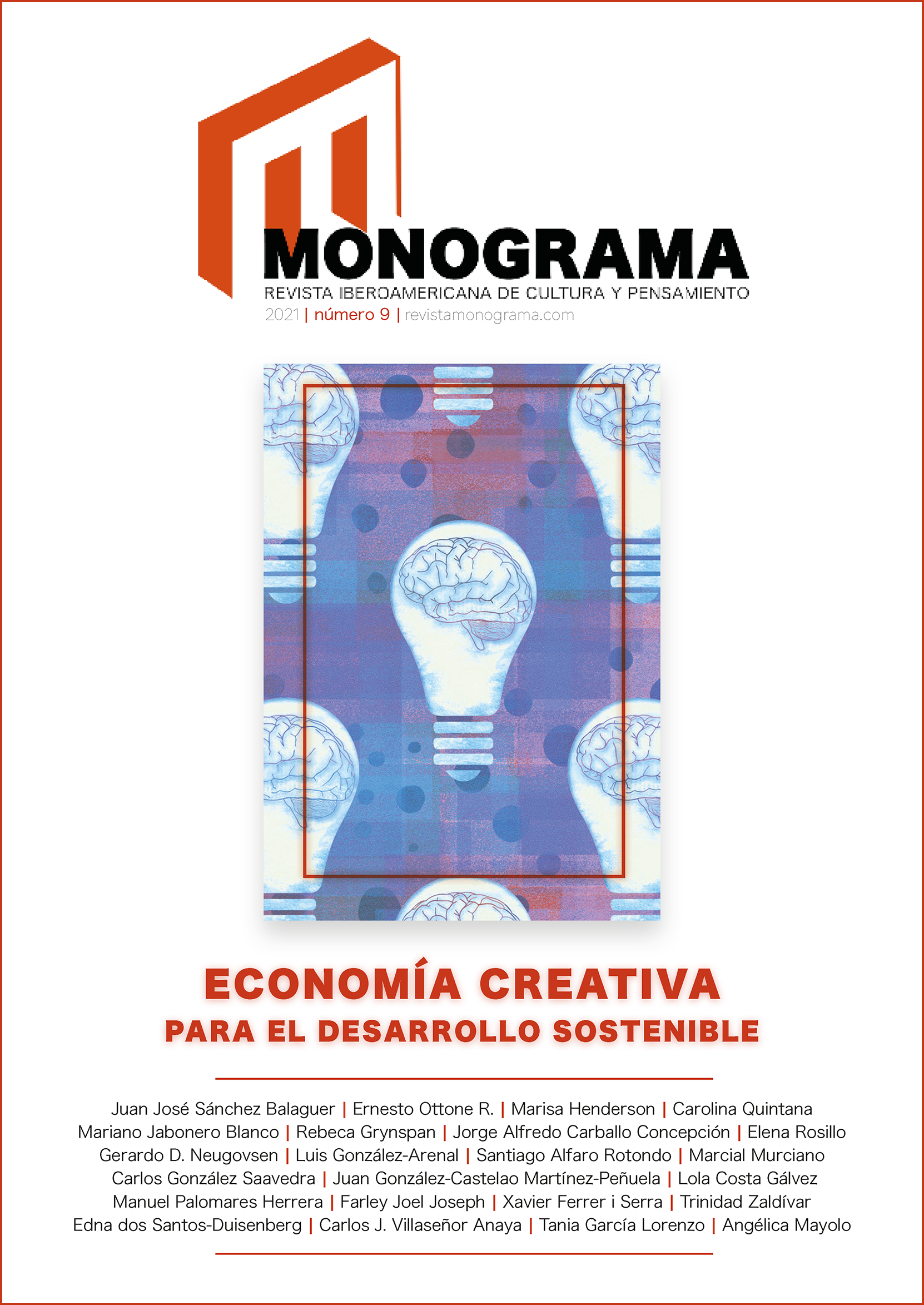Disruptive Potential: COVID‑19 and Emerging Live Music Models in Trinidad and Tobago
DOI:
https://doi.org/10.36008/monograma.2021.09.2221Keywords:
live music, business models, Trinidad and TobagoAbstract
This study explores the impact of the COVID‑19 pandemic on the live music sector of Trinidad and Tobago. It begins with an assessment of the international landscape, before juxtaposing it with local realities. The research is concerned with assessing the disruption affecting live music models, within the context of possible response strategies for the Southern Caribbean island. A qualitative research approach supported by a case study strategy of inquiry is adopted for this study. Six participants were purposely selected, each operating within various foci and niches in the country’s live music sector. The study found that disruption was due to changes in the value chain which resulted from calls for social distancing and limits on public gatherings such as concerts. It was also noted that although changes were rapid, local live music entrepreneurs were able to provide preliminary alternatives to engage fans. However, for these to be sustainable in the long run, greater attention needs to be apportioned to the creation of diverse interactive live music experiences. This must also be accompanied by expanded monetization through the utilization of user‑friendly technologies.
Downloads
References
Baptiste, Dionne (2020). Musicians: Gigs Cancelled, Income Lost because of COVID‑19. Available from: https://caribbean.loopnews.com/content/musicians-livelihoods-affected-coronavirus [18 March 2020].
Billboard Staff (2020). «Here Are All the Major Music Events Canceled Due to Coronavirus (Updating)». Billboard. Available from: https://www.billboard.com/articles/business/touring/9323647/concerts-canceled-coronavirus-list [1 May 2020].
Bryman, Alan (2003). Quantity and Quality in Social Research. Routledge.
Cantor‑Navas, Judy (2020). «Shut In Due to Pandemic, Cuba Opens a Window to the World With Music». Billboard. Available from: https://www.billboard.com/articles/news/international/9369640/cuba-coronavirus-music-quarantine-videos [1 May 2020].
Cobo, Leila (2020). «Back to the Classroom: Top Latin Sidemen and Musicians Teach Online to Make Ends Meet».Billboard. Available from: https://www.billboard.com/articles/columns/latin/9368971/desde-casa-estudio-sony-art-house-latin-music-teaching [30 April 2020].
Craven, Matt, et al. (2020). COVID‑19: Implications for Business. Available from: https://www.mckinsey.com/business-functions/risk-and-resilience/our-insights/covid-19-implications-for-business [13 April 2020].
Creswell, John W. and Creswell, David J. (2017). Research Design: Qualitative, Quantitative, and Mixed Methods Approaches. SAGE Publications.
Eisenhardt, Kathleen M. (1989). «Building Theories from Case Study Research». Academy of Management Review, vol. 14, n.º 4, 1989, pp. 532‑550. doi:10.5465/amr.1989.4308385.
Eisenhardt, Kathleen M. and Graebner, Melissa E. (2007). «Theory Building From Cases: Opportunities And Challenges». Academy of Management Journal, vol. 50, n.º 1, 2007, pp. 25‑32, doi:10.5465/amj.2007.24160888.
Fielding, Nigel G. and Fielding, Jane L. (1986). Linking Data. SAGE Publications.
Frankenberg, Eric. «Music Livestreams Are Up by More Than 20 Percent as Fans Continue to Shelter in Place». Billboard. Available from: https://www.billboard.com/articles/business/chart-beat/9368984/music-livestreams-up-amid-quarantine [30 April 2020].
Gilbert, Ben (2020). «Mercy Mercy Me: Assessing the Impact of COVID‑19 on the Music Industry and Sync Community». Synchtank. Available from: https://www.synchtank.com/blog/mercy-mercy-me-assessing-the-impact-of-covid-19-on-the-music-industry-and-sync-community [7 April 2020].
Hu, Cherie. «The Legal Underbelly of Livestreaming Concerts». Water and Music. Available from: https://www.patreon.com/posts/35791016 [8 April 2020].
Hull, Geoffrey P., et al. (2011). The Music Business and Recording Industry: Delivering Music in the 21st Century. Taylor & Francis.
IDB (2020). The Impact of COVID‑19 on the Economies of the Caribbean Region. 2020 Inter‑American Development Bank.
Lavrakas, Paul (2008). Encyclopaedia of Survey Research Methods. doi:10.4135/9781412963947.
Maxwell, Joseph A. (2005) Qualitative Research Design: An Interactive Approach. SAGE.
Mulligan, Mark (2020). «Lockdown Listening and the Independent Artist». MIDiA Research. Available from: https://www.midiaresearch.com/blog/lockdown-listening-and-the-independent-artist [24 April 2020].
Nurse, Keith, et al. (2007) The Cultural Industries in CARICOM: Trade and Development Challenges. Caribbean Regional Negotiating Machinery.
Pisano, Gary P. (2019). Creative Construction: The DNA of Sustained Innovation. Hachette UK.
Ritter, Thomas and Lettl, Christopher (2018). «The Wider Implications of Business‑Model Research». Long Range Planning, vol. 51, n.º 1, 2018, pp. 1‑8. doi:10.1016/j.lrp.2017.07.005.
Ritter, Thomas and Pedersen, Carsten L. (2020). «Assessing Coronavirus’s Impact on Your Business Model». Harvard Business Review. Available from: https://hbr.org/2020/04/assessing-coronaviruss-impact-on-your-business-model [15 April 2020]
Rutter, Paul (2016). «The Live Music Industry Sector». The Music Industry Handbook, pp. 43‑75. doi:10.4324/9781315692876‑3.
Si Digital (2020). «Progressive Web Apps (PWAs) · Si Digital». Si Digital. Available from: https://sidigital.co.
Smith, Dylan. «Ticketmaster Furloughs Hundreds as Part of $500MM Cost Reduction Plan». Digital Music News. Available from: https://www.digitalmusicnews.com/2020/04/29/ticketmaster-furloughs-staffers-cost-reduction-plan [29 April 2020].
Strauss, Anselm L. (1987). Qualitative Analysis for Social Scientists. doi:10.1017/cbo9780511557842.
Teixeira, Thales S. and Piechota, Greg (2019). Unlocking the Customer Value Chain: How Decoupling Drives Consumer Disruption. Currency.
Tschmuck, Peter (2017). The Economics of Music. Newcastle: Agenda Publishing.
Vissak, Tiia (2010). «Recommendations for Using the Case Study Method in International Business Research». The Qualitative Report, vol. 15, n.º 2, pp. 370‑388.
Volberda, Henk and Heij, Kevin (2017). Reinventing Business Models: How Firms Cope with Disruption. Oxford University Press.
Waddell, Ray D., et al. (2010). This Business of Concert Promotion and Touring: A Practical Guide to Creating, Selling, Organizing, and Staging Concerts. Billboard Books.
Wade, Michael and Bjerkan, Heidi (2020). «Three Proactive Response Strategies to COVID‑19 Business Challenges | MIT Sloan Management Review». MIT Sloan Management Review. Available from: https://sloanreview.mit.edu/article/three-proactive-response-strategies-to-covid-19-business-challenges [17 April 2020].
Webster, Andrew (2020). «Travis Scott’s First Fortnite Concert Was Surreal and Spectacular». The Verge. Available from: https://www.theverge.com/2020/4/23/21233637/travis‑scott‑fortnite‑concert‑astronomical‑live‑report [23 April 2020].
Wirtz, Bernd W. (2019). Digital Business Models: Concepts, Models, and the Alphabet Case Study. Springer.
Yin, Robert K. (2003). Case Study Research: Design and Methods. SAGE.
Downloads
Published
How to Cite
Issue
Section
License
Copyright (c) 2021 Monograma. Revista Iberoamericana de Cultura y Pensamiento

This work is licensed under a Creative Commons Attribution-NonCommercial-NoDerivatives 4.0 International License.
Esta obra está bajo una licencia de Creative Commons Reconocimiento-NoComercial-SinObraDerivada 4.0 Internacional






